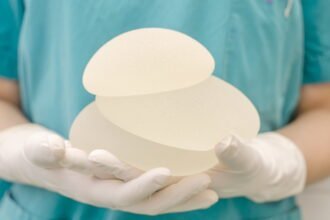Introduction
Rhinoplasty, often referred to as a “nose job”, is a transformative surgical procedure that can enhance facial harmony and boost self-confidence. It is a procedure that has been embraced by many, especially those who are looking to achieve a more symmetrical and aesthetically pleasing nasal appearance.
Offered by esteemed institutions like the Plastic Surgery Group, rhinoplasty is generally considered a safe and effective procedure. However, like all surgeries, it comes with its set of risks. One such risk that patients often inquire about is the possibility of nasal collapse post-surgery. In this comprehensive guide, we delve deep into the causes of nasal collapse after rhinoplasty, preventive measures, and the steps to take if it does occur.
Causes of Nasal Collapse After Rhinoplasty
1. Absence or Depletion of Cartilage
The structural integrity of the nose largely depends on the cartilage. It’s the cartilage that gives the nose its shape and firmness. A significant reason for the collapse of the nasal bridge post-rhinoplasty is the absence or depletion of this vital cartilage. This can happen if too much cartilage is removed during the primary rhinoplasty procedure. According to a study from Dr. Jason Roth, the absence of adequate cartilage can lead to a weakened nasal structure, making it susceptible to collapse.
2. Surgical Errors or Complications
While rhinoplasty is a common procedure, it requires a high level of precision and expertise. Surgical errors, such as the removal of too much septal cartilage or inadvertent damage to the septum cartilage, can lead to complications.
3. Over-resection of the Nasal Dorsum
The nasal dorsum, or the bridge of the nose, is a prominent feature. In some rhinoplasty procedures, there’s a need to reduce the dorsum to achieve the desired shape. However, over-resection or excessive removal of the nasal dorsum can weaken the nasal structure. This over-resection can lead to a phenomenon known as “saddle nose deformity”, where the nasal bridge appears sunken. Berkeley Square Medical emphasizes the importance of a balanced resection to prevent such outcomes.
Preventing Nasal Collapse After Rhinoplasty
1. Choose an Experienced Surgeon
The skill and experience of the surgeon play a pivotal role in the outcome of a rhinoplasty procedure. One of the most effective ways to mitigate the risk of nasal collapse is to opt for a surgeon with a proven track record. Institutions like the Plastic Surgery Turkey Group https://plasticsurgeryturkeygroup.com/us/rhinoplasty pride themselves on their team of seasoned surgeons who have performed countless successful surgeries.
2. Discuss Your Concerns with Your Surgeon
Open communication with your surgeon is crucial. Before undergoing the procedure, ensure that you have a detailed discussion about your goals, expectations, and any concerns you might have. This dialogue will allow the surgeon to tailor the procedure to your specific needs, reducing the risk of complications.
3. Follow Post-operative Instructions
The post-operative phase is as crucial as the surgery itself. Adhering to the surgeon’s instructions can significantly reduce the risk of complications. This includes taking prescribed medications, avoiding strenuous activities, and attending follow-up appointments.
What to Do if Nasal Collapse Occurs
While the occurrence of nasal collapse after rhinoplasty is relatively rare, it’s essential to be prepared and informed about the steps to take if it does happen. Immediate action can help mitigate the effects and lead to a more favorable outcome.
1. Seek Medical Attention Immediately
If you suspect a nasal collapse or notice any unusual changes in the shape or structure of your nose post-surgery, it’s imperative to consult your surgeon or a medical professional promptly. Early detection can pave the way for more effective interventions and prevent further complications.
2. Revision Rhinoplasty
In some cases, a secondary rhinoplasty, commonly referred to as revision rhinoplasty, may be recommended. This procedure aims to correct the issues arising from the primary surgery.
3. Nasal Valve Repair
The nasal valve is a critical area of the nose responsible for regulating airflow. A collapse in this region can lead to breathing difficulties. In such instances, a nasal valve repair might be the best course of action.
4. Cartilage Grafting
For those who experience a significant depletion of cartilage leading to the collapse, cartilage grafting can be a viable solution. This procedure involves sourcing cartilage from another part of the body (like the ear or rib) and grafting it onto the affected nasal area.
The Importance of Post-operative Care
Post-operative care is a cornerstone of a successful recovery after rhinoplasty. While the surgical procedure itself is crucial, the steps taken after the surgery can significantly influence the outcome.
1. Adhere to Medication Schedules
Your surgeon will likely prescribe medications to manage pain, reduce inflammation, and prevent infections. It’s essential to take these medications as directed to ensure a smooth recovery.
2. Avoid Strenuous Activities
Engaging in rigorous activities can strain the surgical site and lead to complications. It’s advisable to take it easy and avoid any heavy lifting or strenuous exercises for the duration recommended by your surgeon.
3. Attend Follow-up Appointments
Regular check-ups with your surgeon can help monitor the healing process and detect any potential issues early on.
The Psychological Impact of Nasal Collapse
While the physical implications of nasal collapse are evident, it’s essential to address the psychological toll it can take on individuals. The nose, being a central feature of the face, plays a significant role in one’s self-perception and confidence.
1. Self-Esteem and Body Image
A successful rhinoplasty can boost an individual’s self-esteem, making them feel more confident in their appearance. However, complications like nasal collapse can have the opposite effect, leading to feelings of disappointment, insecurity, and dissatisfaction with one’s body image. It’s crucial to recognize these feelings and seek support if needed.
2. Anxiety and Stress
The prospect of undergoing another surgical procedure, such as a revision rhinoplasty, can induce anxiety and stress. Concerns about the outcome, potential complications, and financial implications can weigh heavily on an individual’s mind.
3. Seeking Support
It’s essential for individuals to seek support, whether from friends, family, or professional therapists. Talking about one’s feelings and concerns can provide relief and offer a fresh perspective. Moreover, institutions like the Plastic Surgery Turkey Group often have support systems in place to assist patients through their recovery journey.
Conclusion
Rhinoplasty, while a transformative procedure, comes with its set of risks, one of which is the potential for nasal collapse. By understanding the causes, preventive measures, and corrective actions, patients can be better prepared and informed. Choosing an experienced surgeon can significantly reduce the risk of complications. Moreover, adhering to post-operative instructions and attending regular follow-ups can further ensure a successful outcome.
However, if complications do arise, it’s essential to act promptly, seek medical attention, and explore the available treatment options. Equally important is recognizing the psychological impact of such complications and seeking the necessary support.
In the world of cosmetic surgery, knowledge is power. Being informed, asking questions, and maintaining open communication with your surgeon can pave the way for a successful rhinoplasty experience.









